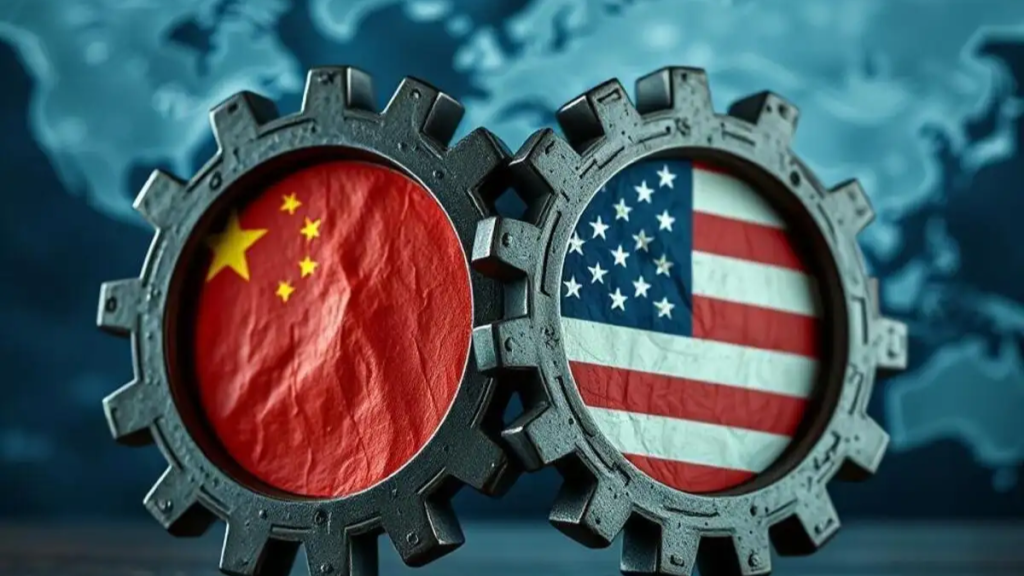In the latest chapter of the ongoing trade rift between the United States and China, Beijing has delivered a strong response to former President Donald Trump’s proposed tariffs, asserting its position with a fresh round of retaliatory duties and legal action.
With global markets watching closely, the intensifying tensions mark a renewed chapter in the U.S.–China economic conflict—one that carries broad implications for international trade and diplomacy.
China Strikes Back with Fresh Tariffs on U.S. Goods
On March 4, the United States announced a 10% tariff on Chinese products worth billions of dollars, citing national security concerns and trade imbalances. China, in swift retaliation, announced that it would be placing new tariffs of 10% to 15% on a range of U.S. imports, effective March 10.
This includes essential commodities such as chicken, wheat, corn, cotton, sorghum, soybeans, beef, pork, and various fruits, vegetables, and dairy products.
The response came with a clear message: China is not backing down in the face of what it views as “unilateral bullying” by the United States. According to China’s Ministry of Commerce, these countermeasures are a necessary step to defend the country’s economic interests and uphold the principles of fair trade.
This escalation has triggered a new wave of concern among American exporters, especially those in agriculture, who are already dealing with the long-term effects of past trade disputes.
Legal Action at the World Trade Organization
Beyond tariffs, China is also taking legal steps to challenge the U.S. actions. Beijing has officially filed a complaint at the World Trade Organization (WTO), accusing the U.S. of violating international trade rules with its new tariffs.
The filing claims that the measures imposed by the Trump-led U.S. administration lack justification under WTO regulations.
The Chinese government argued that such protectionist policies not only damage bilateral relations but also undermine the multilateral trading system.
According to trade experts, this legal battle at the WTO could take months, if not years, to resolve but signals China’s intent to fight the U.S. both economically and diplomatically.
The outcome of this challenge will be closely watched by other global economies that rely on predictable trade norms.
Expanding the Unreliable Entity List
As part of its broader strategy, China has also moved to expand its “unreliable entity list,” adding 10 U.S. companies to the roster. These companies are believed to be involved in sectors tied to defense and dual-use technologies, including surveillance and aerospace equipment.
This list effectively bans Chinese firms from doing business with the named entities without prior government approval and is considered a tit-for-tat response to U.S. export controls on Chinese tech giants.
Beijing stated that the expansion of the list is intended to “safeguard national security and interests,” suggesting that the economic rivalry between the two nations has now extended beyond simple trade disputes and into deeper strategic competition.

Strong Words from Chinese Officials
Chinese government officials have used increasingly direct language in public statements. Foreign Ministry spokesperson Lin Jian condemned the U.S. for exerting “extreme pressure” and warned that such tactics would not succeed.
“China will not hesitate to take strong measures to protect its rights. If the U.S. continues down this path, we will fight to the end,” Lin said during a press briefing.
These comments reflect Beijing’s growing confidence on the world stage, bolstered by its expanding global partnerships and economic clout. China appears determined to send a signal that it won’t be coerced through tariffs or sanctions.
Impacts on Global Markets and U.S. Economy
The economic effects of the escalating trade conflict are likely to be felt far beyond the borders of China and the U.S. Global stock markets have already shown signs of volatility as investors brace for the impact of renewed tariffs and uncertainty over international trade rules.
For U.S. farmers and manufacturers, the latest Chinese tariffs could further strain supply chains and reduce export opportunities. Meanwhile, American consumers may begin to feel the pinch as tariffs increase prices on everyday goods and raw materials.
Experts say the long-term result could be a reshuffling of global trade partnerships as countries seek alternatives to mitigate economic fallout from the U.S.–China standoff.
Political Ramifications for Trump
The renewed trade fight may also have political consequences for former President Donald Trump, who is campaigning for re-election. Trump has long championed tough trade policies against China, claiming they protect American jobs and national interests.
However, critics argue that his approach has hurt American businesses more than it has benefited them.
China’s swift and bold countermeasures may be seen as a political statement as well as an economic one, signaling Beijing’s unwillingness to be used as a campaign talking point without consequence.
Conclusion: Rising Stakes in a Global Trade Showdown
China’s rejection of U.S. threats and imposition of fresh tariffs signal a hardening stance in a high-stakes global economic contest. By combining legal action, economic retaliation, and diplomatic defiance, Beijing is making it clear that it will respond decisively to pressure from Washington.
As the world watches how this latest chapter unfolds, it’s evident that the consequences of U.S.–China tensions will ripple across global markets, industries, and political arenas. Both nations stand at a critical crossroads—one where strategy, timing, and diplomacy will shape the future of international commerce.
For more details on China’s response and its broader implications, visit Business Standard’s full coverage.
Disclaimer – Our team has carefully fact-checked this article to make sure it’s accurate and free from any misinformation. We’re dedicated to keeping our content honest and reliable for our readers.
